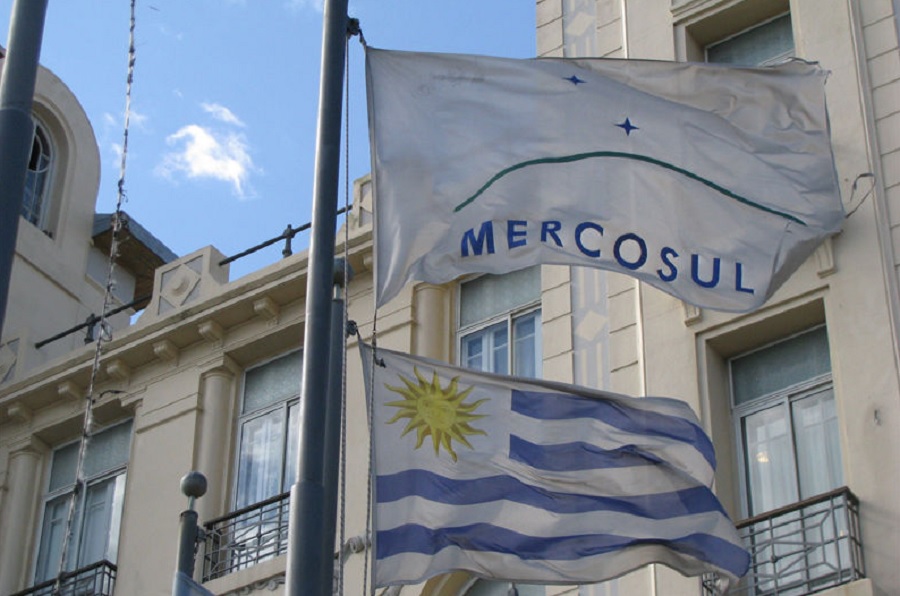RIO DE JANEIRO, BRAZIL – Uruguay’s position was clearly stated during Wednesday’s meeting of the Common Market Group, in which it also rejected the request of other members to reconsider the matter ahead of the December 17 presidents’ summit, arguing that this issue should be discussed by the Common Market Council, in which the regional organization’s Foreign Affairs and Economy Ministers participate.
As a result, the Foreign Ministry expects to open a space for informal talks at the highest level, with the aim of pressuring Uruguay to review its position preventing a consensus.

However, so far, the government has no incentive to change its position. President Luis Lacalle Pou reiterated the government’s stance at a press conference 10 days ago, following Brazil’s move to unilaterally lower the TEC.
“The Uruguayan position is clear, it is over a year and a half old. We have said it in all meetings, we maintain it and after the measure taken by Brazil, it is even clearer that MERCOSUR must be modernized and that the flexibilization to which we refer is more important than ever. Uruguay has started a feasibility study together with China, that is the path we decided to follow and the one we are going to continue,” he assured.
Uruguay’s strategy consists of two parallel paths. On the one hand, the government says that FTA negotiations “are moving forward on their own” based on the explicit interest of Xi Jinping’s government and its own weight in the region and in the world. In other words, Uruguayan officials understand that “flexibilization” is not a prerequisite for the closing of the trade agreement with its main export market.
However, while the government states its determination to go ahead with negotiations with China despite what its partners may say, it is also seeking a discussion on the “flexibilization” or “relaxation” of the regional alliance that would explicitly enable it to negotiate bilaterally with no strings attached.
In this sense, the position of Lacalle Pou’s government is to try to “leverage” the consensus rule – which it has so often discussed – to condition its support to the lowering of the TEC – promoted mainly by Brazil, but also by Argentina and Paraguay – to an easing of the bloc.
Although it initially had the support of Jair Bolsonaro’s government to simultaneously advance on both issues, last month Brazil broke with the strategy by announcing that it would unilaterally proceed with the tariff reduction.
This decision was taken after Foreign Minister Francisco Bustillo met his Brazilian counterpart Carlos França in Montevideo, and weeks after Uruguayan diplomacy demanded explicit support from its northern neighbor for its ongoing negotiations with China.
Uruguay’s decision to tie the reduction of the common external tariff to the approval of a “modernization” of the bloc’s rules, in addition to distancing it from the Brazilian government, which until now had been its main ally, has created conflicting views among the members of the diplomatic body.
The government argues that the lowering of the external tariff “is of no significance” for Uruguay’s interests, and therefore represents a “trump card” or an “opportunity” to negotiate. Those who view with skepticism the steps taken by the Foreign Ministry point out that Uruguay would benefit from the proposed reduction, and that in any case – as Bustillo has stated – negotiations with China do not depend on the “flexibilization”.
The summit of presidents in Brasilia will for the first time bring together in person the presidents of Argentina and Brazil, Alberto Fernández and Jair Bolsonaro.

